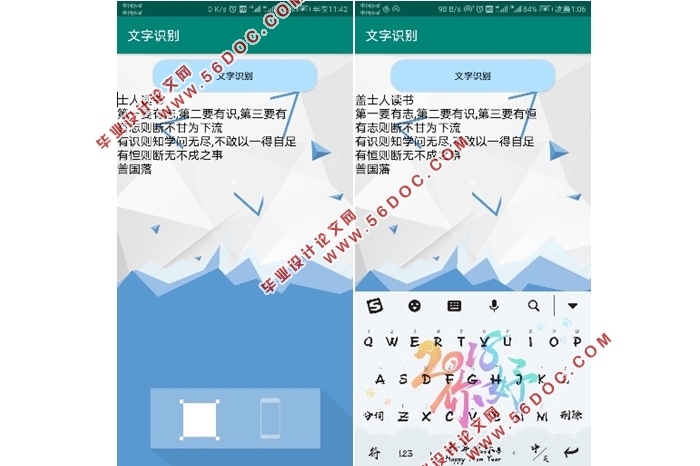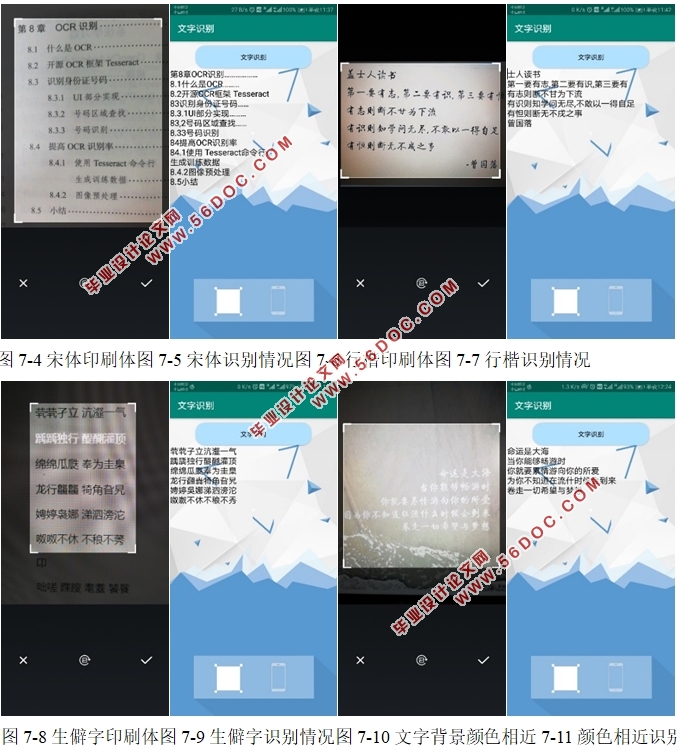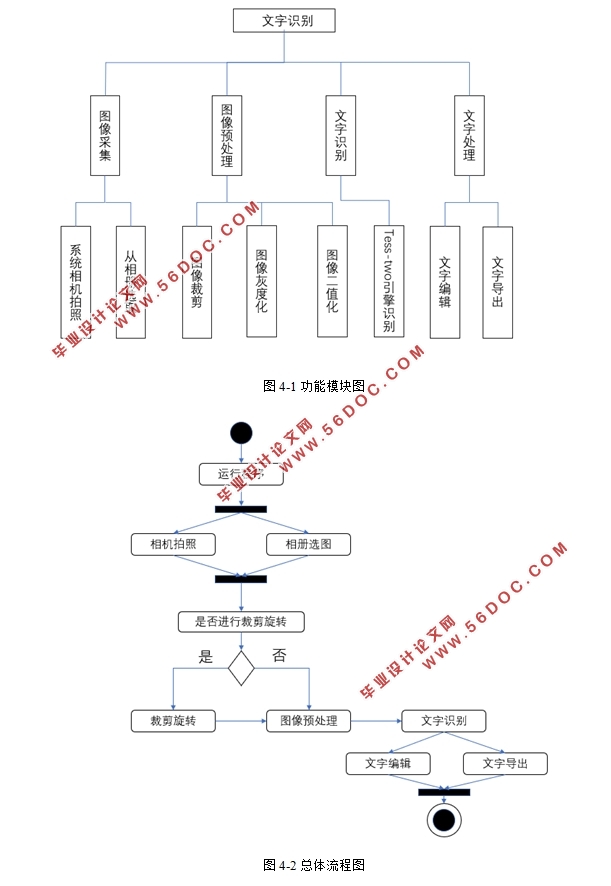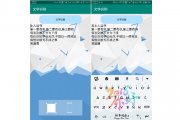基于安卓Android系统的文字识别软件APP的设计(AndroidStudio)
来源:56doc.com 资料编号:5D20551 资料等级:★★★★★ %E8%B5%84%E6%96%99%E7%BC%96%E5%8F%B7%EF%BC%9A5D20551
资料以网页介绍的为准,下载后不会有水印.资料仅供学习参考之用. 密 保 惠 帮助
资料介绍
基于安卓Android系统的文字识别软件APP的设计(AndroidStudio)(论文13400字,程序代码)
摘要:随着人们身边的信息量呈现爆炸式的增长,如何找到一种方法来实现数据的快速输入与存储便显得尤为重要。近几年来,移动设备的大量普及和移动端相机像素的不断提升,使得智能手机与OCR的结合变的可能。本文便以AndroidStudio为开发平台,使用Java语言并结合OpenCV4AndroidSDK开发包和Tess-two识别引擎,开发了基于Android的文字识别软件。本软件能够实现拍照或从图库选取图片并进行文字识别的操作,为了减少运算量,本系统还对图片进行了灰度化和二值化的处理。识别完成后本软件还能对文字进行进一步的编辑与导出。
关键词:安卓;文字识别;OpenCV安卓软件开发包;Tess-two
Design and implementation of text recognition software based on Android system
Abstract:As the amount of information around people grows exploding, how to find a way to quickly input and store data is especially important. In recent years, the popularity of mobile devices and the increasing pixel of mobile cameras have made the combination of smart phones and OCR possible. This article uses Android Studio as the development platform, uses Java language and combines OpenCV4Android SDK development kit and Tess-two recognition engine to develop Android-based text recognition software. The software can realize the operation of taking pictures or selecting pictures from the gallery and performing text recognition. In order to reduce the amount of calculation, the system also performs grayscale and binarization processing on the pictures. After the recognition is completed, the software can further edit and export the text.
Key words:Android; text recognition; OpenCV 4AndroidSDK; Tess-two



目录
1、绪论 1
1.1 研究目的 1
1.2 研究意义 1
1.3 研究现状 1
2、技术简介 2
2.1 OCR 2
2.2 Android 2
2.3 Tess-two 3
2.4 OpenCV4Android SDK 6
2.5 JNI与Android NDK 6
3、系统分析 7
3.1 可行性分析 7
3.2 需求分析 8
3.2.1功能性需求 8
3.2.2 非功能性需求 9
4、总体设计 9
4.1 总体结构 9
4.2 总体流程 10
5、详细设计 11
5.1 图像采集模块设计 11
5.2 图像预处理模块设计 12
5.2.1 灰度化 13
5.2.2二值化 14
5.3 文字识别模块设计 14
5.4 文字编辑 15
6、系统实现 15
6.1 环境搭建 15
6.2 UI设计 17
6.3 图像采集功能实现 18
6.4 图像预处理功能实现 19
6.5 文字识别 20
6.6 文字编辑与导出 21
7、系统测试 21
7.1 系统打包 21
7.2 系统测试环境 22
7.3 系统功能测试 22
7.3.1 图像采集功能测试 22
7.3.2 文字识别功能测试 23
7.3.3 文字处理功能测试 26
8、总结与展望 27
8.1 主要工作总结 27
8.2 未来研究展望 28
参考文献 28
致谢 30
|







